1998 Student Kidnapping is Human Rights Violation
Prabowo Subianto is hoping to erase his sins in relation to the 1998 kidnappings. Gross human rights violations will not be a priority.
maaf email atau password anda salah

Prabowo Subianto is hoping to erase his sins in relation to the 1998 kidnappings. Gross human rights violations will not be a priority.

The obligation to obtain halal certification leads to higher economic costs and corruption. Labeling products that are non-halal would be more efficient.

Jokowi’s son-in-law, Bobby Nasution is caught up in alleged bribery involving a mining permit in North Maluku. He is accused of selling his influence.
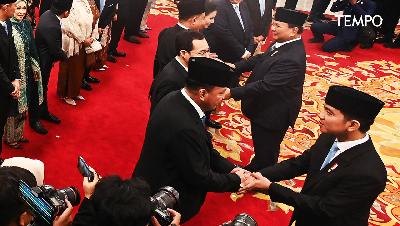
A number of problematic individuals are appointed to Prabowo Subianto’s cabinet. It will be difficult for the government to be effective in its first one or two years.
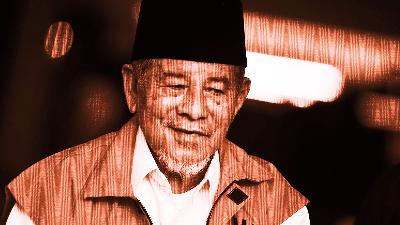
The term “Medan Block” emerged during the trial of former North Maluku Governor, Abdul Gani Kasuba. Medan Block is believed to refer to pre-allocated nickel mining concessions in Halmahera.
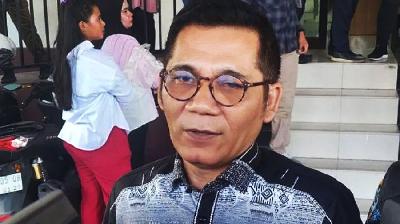
Former North Maluku Governor Abdul Gani Kasuba acknowledged meeting with Bobby Nasution but claimed he gained no advantage from it.
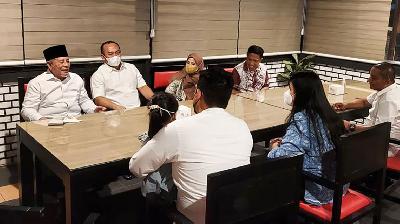
Bobby Nasution is suspected of managing the Medan Block nickel mine since 2021. He met with Abdul Gani Kasuba before becoming the Mayor of Medan.
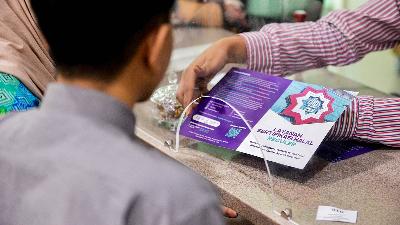
Entrepreneurs complain about the costly and complicated halal certification process. They must pay monthly fees for supervision.

Halal certification is slow due to inadequate supporting infrastructure. It has the potential to trigger a high-cost economy.

Entrepreneurs are pressured by the mandatory halal certification regulations. The costs associated with obtaining halal labels are considered expensive, and the procedures are complicated.
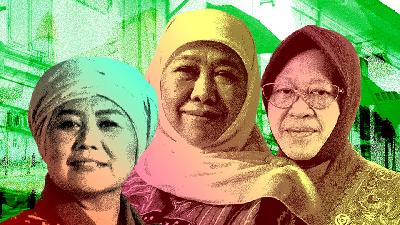
Three East Java gubernatorial candidates—Luluk, Khofifah, and Risma—talk about the competition in the 2024 regional head elections.
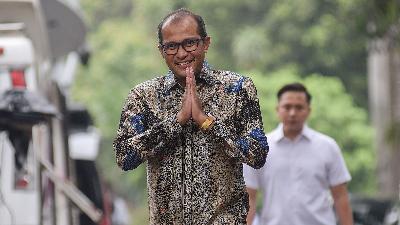
Prabowo Subianto appointed ministers and deputy ministers with problematic backgrounds in his cabinet. Several of them are closely associated with businessman Haji Isam.
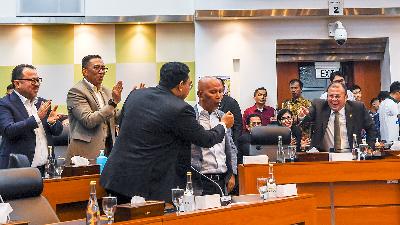
The PDI-P received the most positions as leaders of the DPR working bodies. Surya Paloh met with Bahlil Lahadalia to discuss the allocation of commission chairs.

The new ministries and agencies established by Prabowo Subianto cannot operate immediately. Some lack office space, have tight budgets, and are short on staff. The authority of the Haj and Umrah Organizing Agency even violates the law.

The rupiah is weakening amid the power transition, with global factors also exerting heavy pressure.

The new government under Prabowo Subianto is already formed. Can we hope for what the future holds?

Driven by corporate demand, helicopter business opportunities continue to grow. Operators are increasingly expanding their fleets.

The phrase “human rights” was lost from Prabowo Subianto’s inauguration speech.
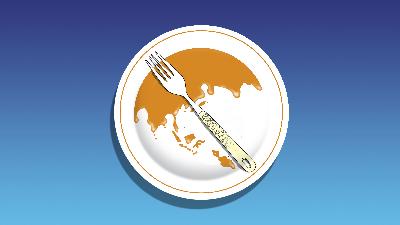
Food, like language, clothing, and customs, is a marker of our roots. Especially in the past.
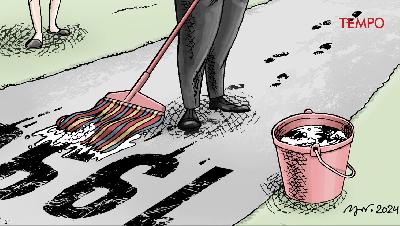
Cartoon: Yuyun Nurrachman
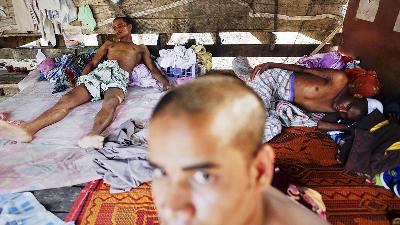
Rohingya refugees in Thailand, Malaysia, and the Philippines are treated differently than those in Indonesia.
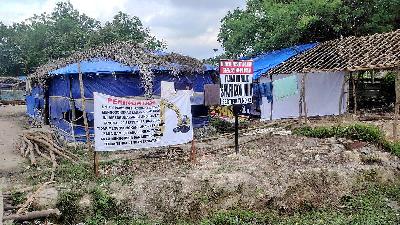
The Rohingya refugees living in Pekanbaru have more freedom to move around and reside in lodgings. Their children can also attend school.
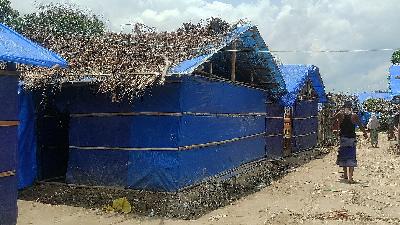
The increasingly overcrowded refugee camps demand improvements in the mechanisms for handling Rohingya refugees. The number of refugees continues to rise.

Several Rohingya refugees successfully built their careers in various fields. They continued to work and raised awareness about the plight of displaced Rohingya refugees.

Rohingya refugees are still living in several inadequate temporary shelters in Aceh.

There are indications of problems with the IPO of Barito Renewables Energy. The stock exchange and capital markets authorities are neglecting their responsibilities.

There is an increasingly real threat to Indonesia’s biodiversity. It cannot be overcome through empty slogans at international forums.

The KPK should designate Sahbirin Noor a fugitive. There is a good chance the South Kalimantan Governor will go free.
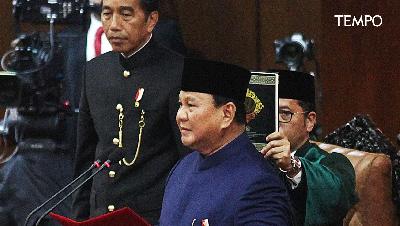
How did Prabowo Subianto decide on the composition of his cabinet? There are indications that several prospective ministers were proposed by tycoons.

Prabowo Subianto is inheriting an inefficient economy. Yet his new administration is likely to follow Jokowi’s economic model.
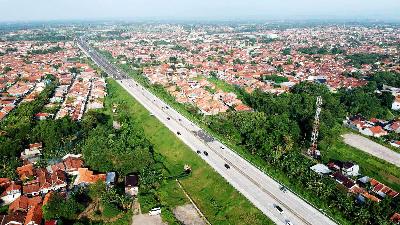
The Joko Widodo administration leaves a heavy burden for state-owned enterprises. Many projects result in big debts.
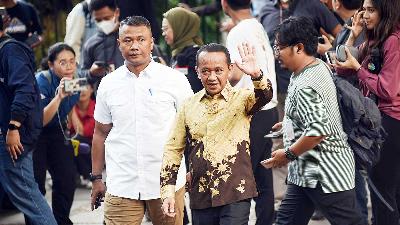
President Jokowi entrusted his confidants to join Prabowo’s cabinet. Several ‘volunteers’ also received positions.

Prabowo Subianto formed a large cabinet to accommodate the interests of parties, businessmen, and his supporters. Mining entrepreneur Haji Isam is suspected of proposing several ministerial candidates.
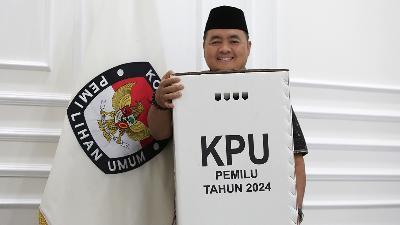
KPU Chair Mochammad Afifuddin on turbulence within his institution following the dismissal of Hasyim Asy’ari, and the Constitutional Court’s decision on the regional head elections.
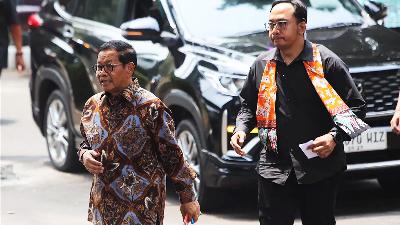
Megawati reportedly did not approve of PDI-P cadres entering Prabowo’s cabinet. She chose Pramono Anung to communicate with Prabowo.
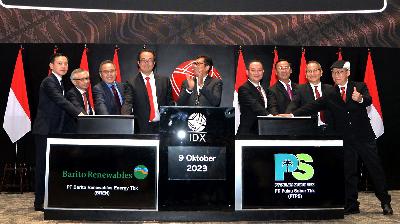
The Stock Exchange detects alleged violations in the IPO of Barito Renewables Energy. There are indications of maneuvering around public shareholding requirements.
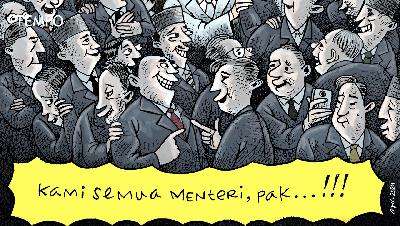
Cartoon: Yuyun Nurrachman
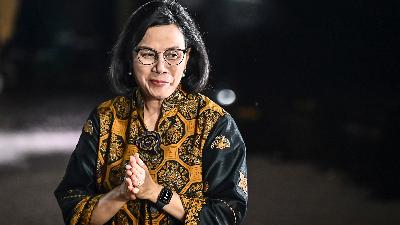
Sri Mulyani and several economic ministers from Jokowi join Prabowo’s cabinet, with encouragement from two former presidents.
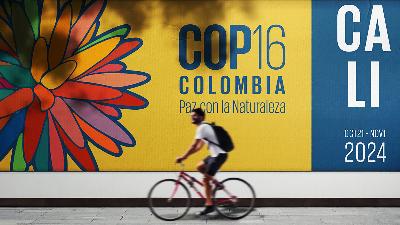
Indonesia’s delegation at COP16 CBD in Cali, Colombia, is not led by a minister. Biodiversity funding is at risk of not being agreed upon.

South Kalimantan Governor Sahbirin Noor is suspected of receiving commissions on three projects in the e-catalog. He has not been seen since being named a suspect.
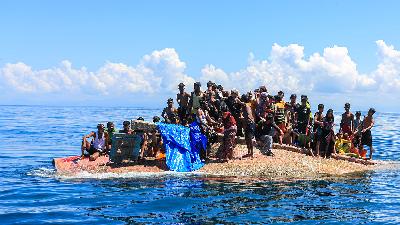
Uncertain future looms over Rohingya refugees in Indonesia. They are also struggling with various limitations.

Empathy is the key to happiness. We are happy when we help others, we are happy when we do good.

OJK’s right of reply and a remembrance to Mochtar Lubis who wrote about government.

The KPK uncovered alleged embezzlement of the Taspen pension fund involving Sinarmas Sekuritas. The result of poor supervision by the OJK.

A number of policies from Minister Sakti Wahyu Trenggono are riddled with conflicts of interest. They benefit his son, Indra Trenggono.

There are indications that the selection of the KPK leadership for the 2024 to 2029 period is in breach of a Constitutional Court ruling. The process needs to be rerun.
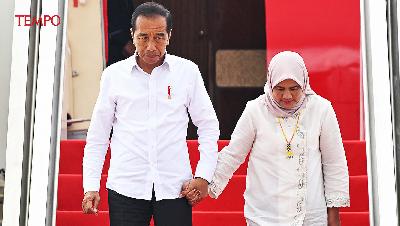
Jokowi is like a king reluctant to relinquish his crown. Nearing retirement, he is still trying to improve his image.

A reader’s letter suggests authorities seek ways for safe and efficient logistics transportation, in order to minimize traffic accidents.
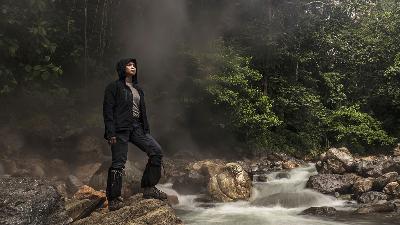
Farwiza Farhan, the winner of the 2024 Ramon Magsaysay award talks about conservation of the Leuser Ecosystem in Aceh.
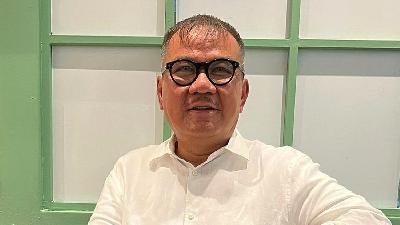
The KPK Leadership and Supervisory Board Selection Committee claimed to have followed procedures, and Jokowi reportedly did not intervene.
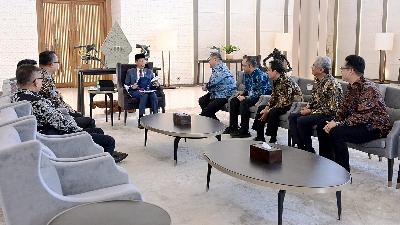
Various parties from the National Police Chief to the State Palace are accused of interfering in the KPK leadership candidates selection process. The candidates are divided into four clusters.

The KPK is investigating Taspen’s investment losses. Sinarmas is behind the transaction.
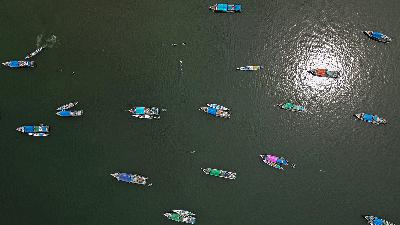
The family members of some ministers enter the fishery business. Other problems, such as the activity of illegal foreign vessels and the abuse of crew members, still prevail.

Explanations from State Secretary Minister Pratikno and Maritime Affairs and Fisheries Ministry on fishery business and the case of illegal ships in eastern Indonesia.
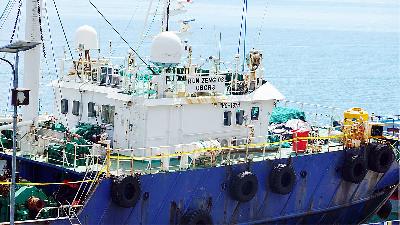
Illegal fishing and slavery continue to occur in Indonesian waters. Crew members are vulnerable to abuse.
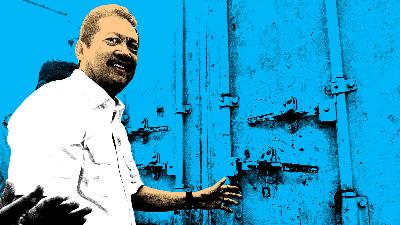
Minister Sakti Wahyu Trenggono revives a shutdown port. There is indication that the minister’s son is involved in the fisheries business.
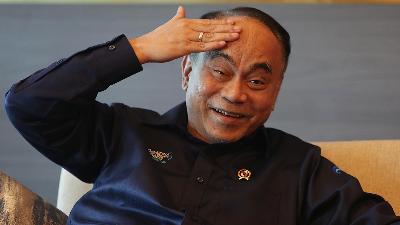
Tempo’s interview with Minister of Communication and Informatics Budi Arie Setiadi about Jokowi’s campaign before the end of his tenure.
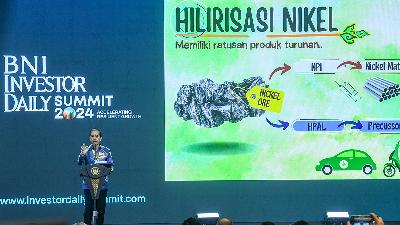
Jokowi’s campaign promoting his successes is considered as not portraying actual conditions. Customary communities are among the victims of his administration.
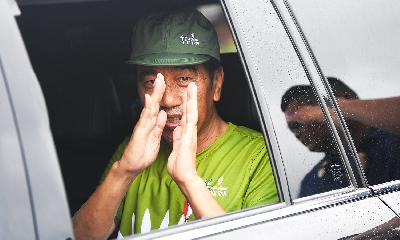
After stepping down, Jokowi will return to Solo, accompanied by his loyal supporters. He is not having a lavish farewell in order to avoid any negative sentiment.

As President Jokowi's term neared its end, instructions were given to promote the government's achievements, and billions of rupiah in contracts were offered to the media.

The market showed no positive reaction ahead of Prabowo Subianto's government, which was held back by the high amount of debt.

Life is not always about science and philosophy. This is where literature shows its value.
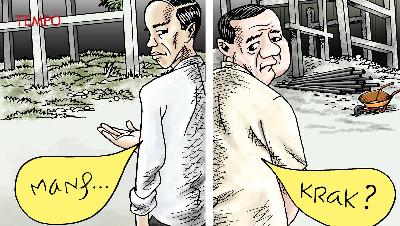
Cartoon: Yuyun Nurrachman
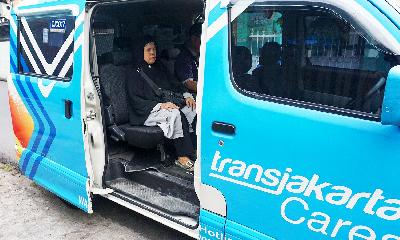
Jakarta's regulations were considered as failing to fulfill the aspirations of differently-abled people
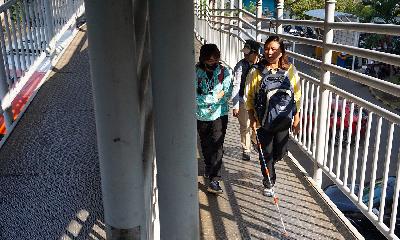
Tempo accompanied several differently-abled people as they navigated public transportation in Jakarta.
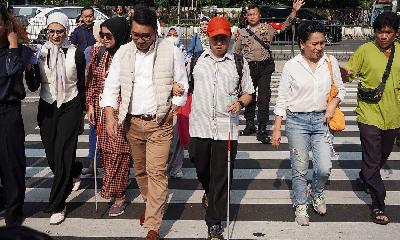
Jakarta governor and deputy governor candidates promise improvements in inclusive public transportation.
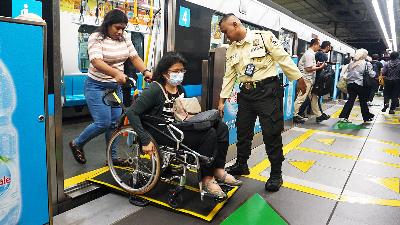
Jakarta is striving to provide inclusive transportation, but challenges remain, from funding issues to construction oversight.
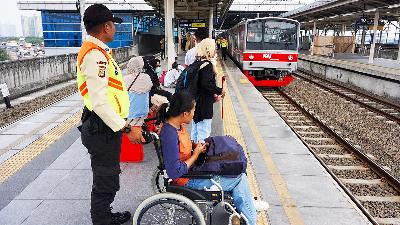
Despite some improvements, much still needs to be done regarding access to public transport for people with disabilities.

Officials are all trying to avoid responsibility for illegal gold mining in protected forests. The dangers to the environment and to health are being ignored.

Instead of paying its debts, the Bakrie Group is suing 12 creditors. This could become a bad precedent for the investment climate.

The contest for the selection of the Supreme Court Chief Justice is heating up. There are indications it is riddled with the interests of the government and tycoons.
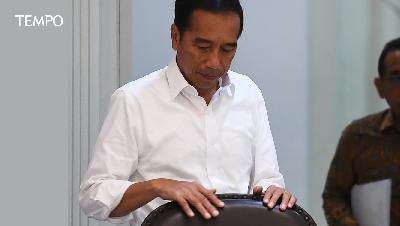
Jokowi passed a number of strategic policies at the end of his administration. Making the president-elect a hostage to fortune.
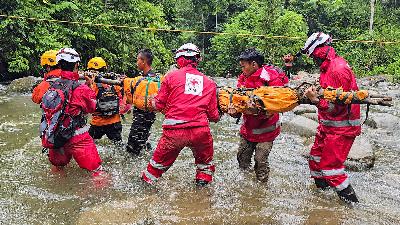
Illegal gold mines that collapsed in Solok Regency, West Sumatra, damage the Batanghari watershed. Authorities are suspected of protecting investors.
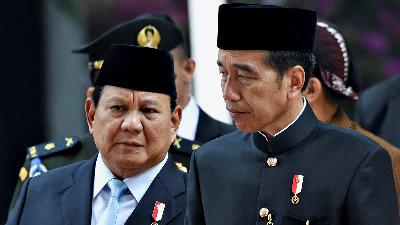
Before Jokowi’s term ends, the Presidential Palace is maneuvering to provide cover for Gibran. This includes erasing traces of the Fufufafa account as well as interfering in the formation of Prabowo’s cabinet.
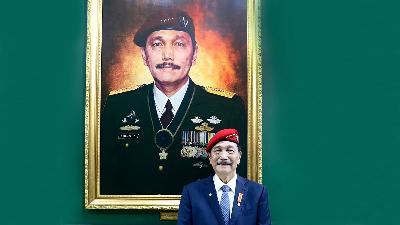
Luhut explains his close ties with Jokowi, and the plans of the president-elect Prabowo. This is his first interview with Tempo after the one on the Panama Papers eight years ago.
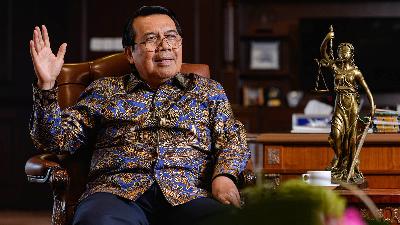
Supreme Court Chief Justice Muhammad Syarifuddin uses artificial intelligence to handle cases. Case brokers continue to be a threat.
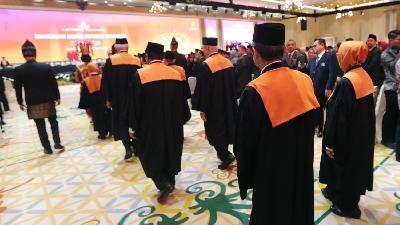
The race for the position of Chief Justice of the Supreme Court is heating up amid a flurry of allegations against certain candidates. There is suspicion of backing from business circles.

Indonesia and other countries continue to oppose the European Union’s Deforestation Regulation. The European Commission proposes a delay.

VIVA Group is facing a restructuring process under a debt payment suspension scheme and is threatened with bankruptcy. There are maneuvers to lobby creditors and reduce debt.
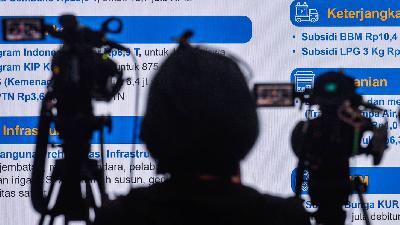
Media companies are experiencing upheaval due to the rapid changes in the business landscape. The industry is moving towards a new equilibrium.
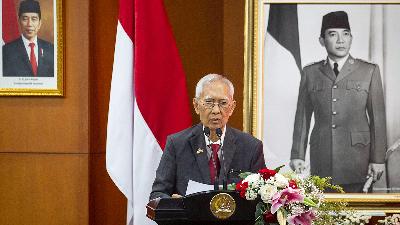
President Joko Widodo is suspected of supporting the restoration of Suharto’s name, with a possibility of being declared a national hero.
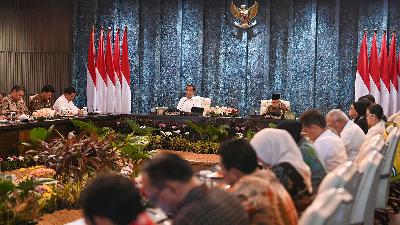
Jokowi is preparing for the incoming Prabowo-Gibran administration starting in late February 2024. He hopes that Prabowo can continue his programs.

Indonesia’s economy and financial markets are once again facing volatility stemming from China and the Middle East, leaving no respite for investors.

Power is never without crisis. Tumapel shows power as a story of unending antagonism.

With old faces still occupying more than half the seats, can DPR members be trusted to speak up and truly represent the people’s voice?
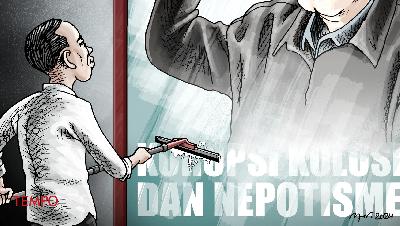
Cartoon: Yuyun Nurrachman

The police arrested a drug baron who was operating from inside a prison. It is a chronic problem that remains unsolved.

Using a variety of pretexts, the political parties replace elected legislative candidates. This is a betrayal of the people’s choice.
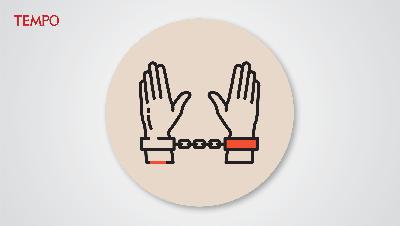
The kidnapping of pilot Phillip Mehrtens was ended through negotiation. This is a lesson for the Prabowo administration about how to resolve the Papua conflict.

The sea sand export policy benefits financial backers close to tycoons. Also, it is a gift for Singapore.
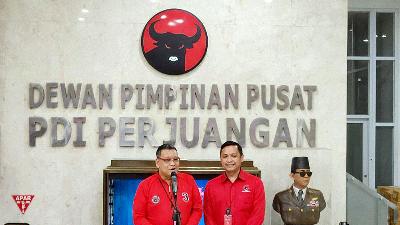
Political parties replace elected legislative members over alleged vote manipulation.
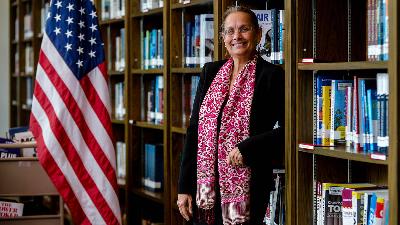
United States Ambassador Kamala Shirin Lakhdhir speaks about women, education, and Indonesia’s new administration.

The partnership between Riau regional company and Kingswood Capital Ltd resulted in criminal charges, with two top executives now facing allegations of embezzlement.
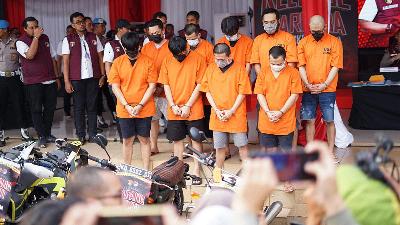
Hendra Sabarudin’s drug network distributed methamphetamine from Tarakan prison starting in 2017, allegedly aided by police and prison guards.
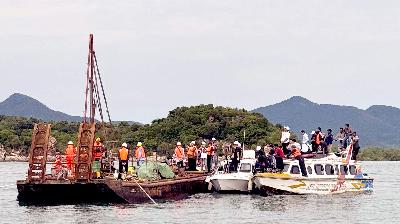
Customs has differing views from the Ministry of Maritime Affairs and Fisheries regarding sea sand export tariffs, aiming for regulations that facilitate ease.

Egianus Kogeya quietly freed Susi Air pilot Phillip Mark Mehrtens. His hope to trade the pilot for Papua’s independence failed.
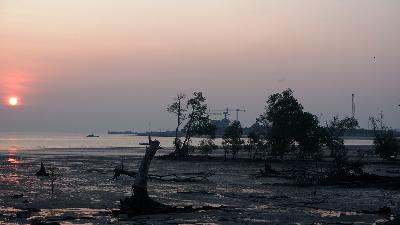
The government plans to dredge 17.6 billion cubic meters of sea sand and sediment, altering the landscape and destroying marine life.

Two ministers of President Joko Widodo have paved the way for the exploitation and export of sea sand. Domestic and export interests are at odds.
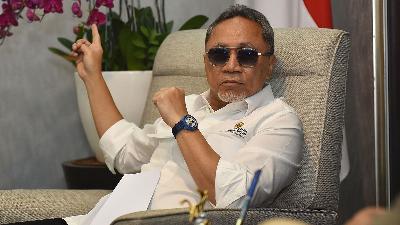
Trade Minister Zulkifli Hasan on the issues ranging from sea sand export policy to Prabowo Subianto’s bureaucratic management style.
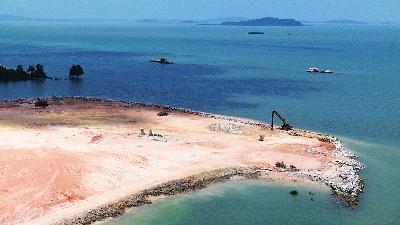
The government designated a number of areas as zones for cleaning sediment and sea sand.
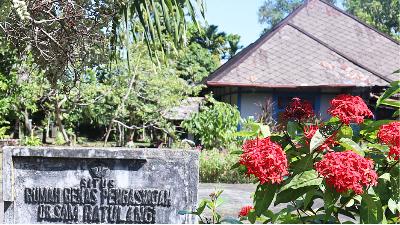
Silas Papare and some residents in Serui founded the Irian Indonesian Independence Party. They were assisted by Sam Ratulangi.
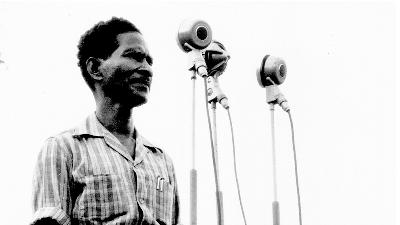
Silas Papare helped the Allies fight against the Japanese in West Irian. He supported Indonesian independence because of conflict with the Netherlands.
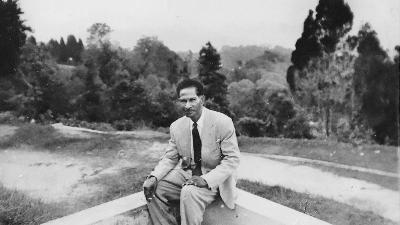
Silas Papare was close to Sukarno. He refused to participate in the 1969 referendum because he was once arrested by the military.

Top management of Bank Mayapada allegedly obtained kickbacks from customer credit disbursements. The OJK was lax in their oversight of this bank owned by a member of the Presidential Advisory Council.

Learning from Japan. When development is planned, the government discusses it with the public until an agreement is achieved.

On moral lessons from Japan and the USA, and how the BPK should prevent state budget corruption.

The Bukalapak initial public offering (IPO) is the beginning of a list of digital unicorns entering Indonesian Stock Exchange. Retail investors and public fund managers need to be cautious.

Bukalapak is breaking new record at the Indonesian Stock Exchange. Speculations on the potential big investors remain.

Delving further into the literary works of Nobel laureates from Japan like Kawabata and Yukio Mishima, we can notice the very paternalistic puritan morals of Asian nations.

I WAS a participant with the highest rating in the #maudigaransimurah program of Bukalapak carried out on October 7-December 31, 2019.
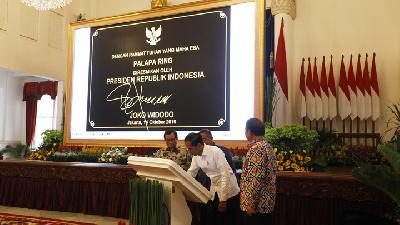
The promise of fast and cheap Internet access in outer regions through the Palapa Ring has yet to materialize. The stumbling block is connecting the Internet to the optic fibre cable network.
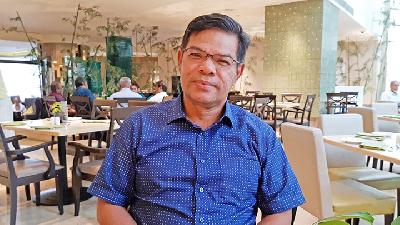
Malaysia's political crisis began when Mohamed Azmin Ali and a number of parliament members from Pakatan Harapan (The Alliance of Hope) met with opposition parties.

With 'stone' as the common thread, Babad Batu is a cerebral journey on a road with many side roads. Sapardis latest collection is encyclopedic, primordial and political.

To some conservative Japanese reactionaries, writer Aiko Kurasawa is unpatriotic because she wrote a book on the cruelty of the Japanese military in Javanese villages. She has been branded by some as a communist. Kurasawa's interest in Indonesia began a long time ago, when she first read about Sukarno, whom she regards as a hero of the Asia-African movement. Not surprisingly, when the 1965 events exploded, she was devastated upon reading about the resulting fall of Sukarno. "I was shocked," said Kurasawa, who was recently interviewed at her home in south Jakarta.

Regarded as the Golden Age of Indonesian history, the vast maritime empire of Majapahit reached its apogee in the 14th century. Though it thrived for only 300 years (late 13th century to early 16th century), Majapahit was Indonesia's greatest state, the last in a long line of Buddhist and Hindu Javanese kingdoms. Islam had ostensibly erased Indian cultural traditions by the 16th century, yet Buddhist-Hindu traces can still be seen in the rituals and architecture of the kraton courts of Bali and central Java, and innumerable motifs and styles of the earlier cultures are found everywhere in Indonesian art.

For the second time this year, and against his doctor's advice, senior economist Gustav F. Papanek from Boston University returned to Indonesia. With a new government in place, this 87-year-old former advisor to the 'Berkeley Mafia'influential economists of the New Order erafelt the need to address a very urgent problem: The declining income of the poor, which as he noted "is immoral and also politically undesirable; therefore, it is important to take substantial steps to increase their income. The only way you can do that is by providing industrial jobs."
Although he was unable to meet President Joko Widodo, he managed to meet Sofyan Djalil, Economic Coordinating Minister; General Moeldoko, Armed Forces Chief; and ChatibBasri, former Finance Minister, and gave talks in three universities and Bank Mandiri as well as numerous interviews with the media. In a packed schedule, averaging two presentations a day, he found ways to push his ideas.

The banking business is in a flux as a result of the war of interest rates among banks. But the owner of the Mayapada Group, Dato Sri Tahir, is optimistic that the banking sector in Indonesia will continue to grow. "Growth depends on situations and conditions," Tahir told Tempo, two weeks ago. Having travelled all over the world, Tahir concluded that the best investment opportunities are still found in Indonesia.
He believes that investment opportunities in Indonesia are still better and that includes the business prospects of his Mayapada Group. He told Tempo reporter Christine Munthe in an interview that he would never sell Mayapada for whatever price. Excerpts:

Slum dwellings can be found throughout the Sunda Kelapa zone. Developing the area will require a major clean up.

Early in March, Agus Aris Munandar, an archeology professor at the University of Indonesia, presented a controversial lecture: there were no canals in Majapahit. He refuted all theories that Majapahit was a canal city, including the intensive research by senior archeologist Mundardjito. How did Mundardjito react?

Lured by bombastic ads on local and national television, thousands of cancer patients have become victims of the Harapan Baru traditional Chinese clinics, particularly its branch in Medan, North Sumatra. Harapan Baru guarantees cures with its herbal treatment while infusing patients intravenously with chemotherapy, an illegal procedure given that the traditional healers are not licensed to practice modern medicine. Steroids about 200 times the strength of morphine are another 'magical' cure. This medical and ethical violation has been going on for years, yet the regulatory seem to turn a blind eye.

A number of researchers have been to Holland in search of traces of the Sundanese dangding poetry of Hasan Mustapa, trying to find original manuscripts of this little known literary figure.

The burial ritual for Granny Kapa involved 400 residents, a month’s preparation, and costs around Rp1 billion.

He was known to be close to Japan but he was smart enough to lessen their pressure and to usher in the proclamation of Indonesia’s independence.

Japan’s Democratic Party won a landslide victory in the recent general election. But the public still doubts Yukio Hatoyama’s capability as the new Prime Minister.

This travel account penned by 21 Indonesian architects in Japan is not merely concerned with buildings.

There have been increasing demands to implement one of the key elements of the 1998 Reforms. Indeed, a number of things have been achieved, like cutting down the military’s political rights in parliament during the 2004 General Elections. Law No. 34/2004 on the TNI says the TNI businesses must be cleaned up. After the data collection team—implemented by Secretary of State-Owned Enterprises, Said Didu—verification will be carried out by the National Team on TNI Assets Takeover, led by Erry Riyana Harjapamekas.

For years, a timber mafia worked in unison to plunder the forests of Ketapang, West Kalimantan. They consist of dealers, loggers, members of the Forestry Office, police officers, officials of the Forestry Department and authorities from the local regency government. The Joint Team of National Police Headquarters and the Forestry Department estimates that state losses amount to Rp32.4 trillion annually. This is equivalent to 26 times the 2008 regional budget for West Kalimantan province.
Three weeks ago, the Joint Team was able to dismantle the mafia’s timber network in Ketapang. Among those arrested were the head of the Ketapang Office of Forestry, the Chief of the Ketapang District Police, and a candidate for the office of regent. Tempo reports from Ketapang.

The crewmen of a Japanese ship abducted in the Malacca Strait were released. Tokyo has urged that security in the area be increased.

One Japanese cosmetic company holds 24 patents over Indonesian indigenous plants. Must we now pay taxes on the spices in our own backyards?

Police act excessively in handling the demonstrations nationwide in support of the Constitutional Court decision. Where are the President and Vice President?

The structure of Indonesian democracy is weakening because its foundations are being undermined. A Javanese word to describe the situation is nglimpe, which is to deceive secretly.
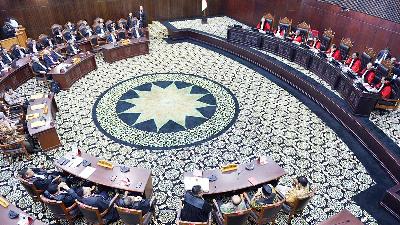
The latest revision to the Constitutional Court Law severely restricts the independence of Constitutional Court judges. Perpetuating authoritarian power.
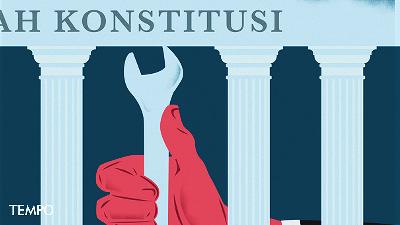
The government and House of Representatives agreed to revise the Constitutional Court law to weaken the institution. There are indications of attempts to protect the Prabowo-Gibran government.
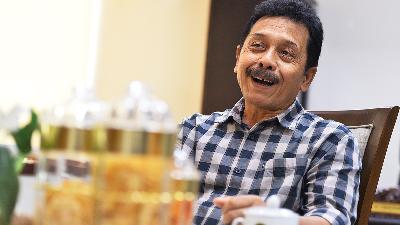
Constitutional Court’s Ethics Council Chair I Dewa Gede Palguna on his stance rejecting a revision to the Constitutional Court Law.
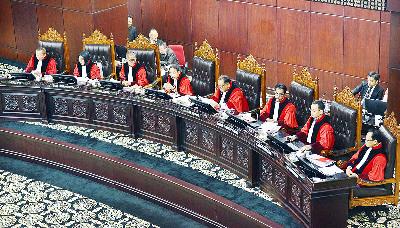
The Constitutional Court rejected lawsuits disputing the results of the 2024 presidential election. The option of disqualifying Gibran was discussed in a meeting of the judges.
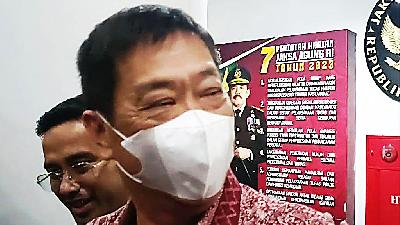
Robert Bonosusatya denies involvement in the Bangka Belitung tin corruption case. He often discusses tin business with other entrepreneurs.

Illegal tin mining is rampant in the waters of Bangka Belitung. The environmental damage is much greater than investigators estimated.

The situation in Gaza is getting worse for newborn babies and mothers giving birth.
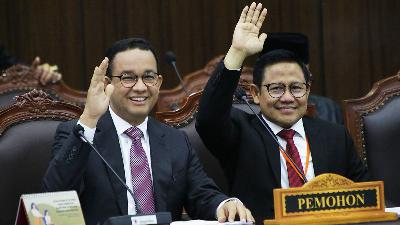
Anies and Ganjar can only rely on a lawsuit to the Constitutional Court because the route of the right of inquiry at the DPR is deadlocked. They are focusing on election interference by President Jokowi.
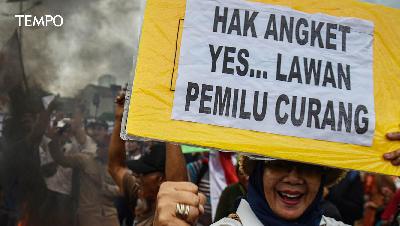
Anies and Ganjar, along with their campaign teams, are asking the Constitutional Court to annul the victory of Prabowo and Gibran. This is an opportunity to restore the Court’s honor.
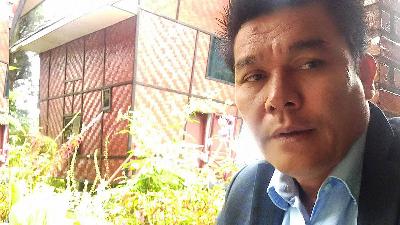
Sihol Situngkir denies committing human trafficking in the ferienjob program. The employment agency obtained a 100-euro commission for every student.

KPAI Chair Ai Maryati Solihah on bullying cases in educational institutions such as the recent incidents at the Binus High School and an Islamic boarding school.
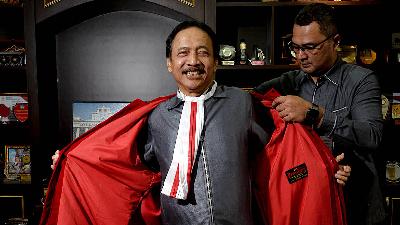
New Constitutional Court Chief Justice explains the efforts he is making to regain public trust of the Court following the Anwar Usman fiasco.

The violence in Bitung must not be allowed to spread. In the run up to the 2024 elections, there is a risk of horizontal conflicts breaking out.
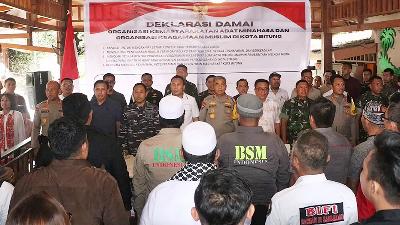
Police and authorities are setting up security strategies following clashes in Bitung. It has the potential to become a religious conflict.
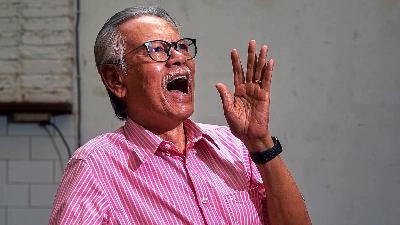
Erry Riyana Hardjapamekas had a meeting with the President before the Constitutional Court issued a ruling that allowed Gibran Rakabuming Raka to move forward as a vice presidential candidate.

Policy breakthroughs are needed to restore public trust in the Constitutional Court.

Anwar Usman breached the code of ethics. The Constitutional Court’s Ethics Council should dishonorably discharge him.
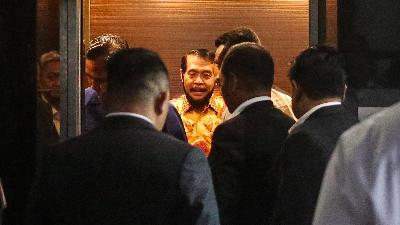
The Constitutional Court’s Ethics Council (MKMK) scrutinizes the role played by Constitutional Court Chief Justice Anwar Usman. The formation of the MKMK is being stalled.
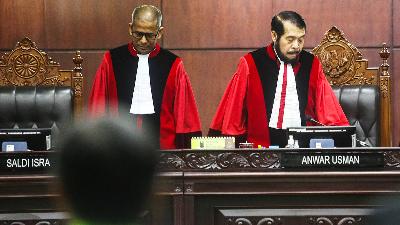
The Constitutional Court reportedly already made a decision in favor of a lawsuit regarding the minimum age requirement for presidential and vice-presidential candidates. The issue is rife with conflicts of interest.
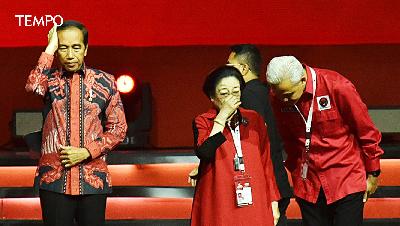
The Constitutional Court is handling the presidential-vice presidential candidates' age limit judicial review. Jokowi family's conflict of interest is thick.

Transpersonal psychology is a new branch of psychology that incorporates religion and spirituality.

There have been many attempts to extend the terms of office of public officials during Jokowi’s second administration. These are at odds with constitutional principles.

What lies within the rise of spiritual secularism?
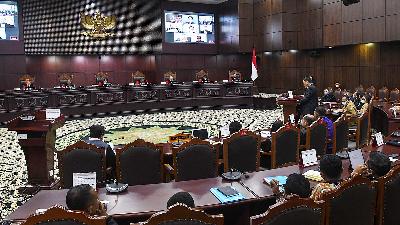
Weekly news summary, from widely voiced criticism aimed at the Constitutional Court to Jokowi’s move to reopen sea sand export that stirs public ire.

The Asset Forfeiture Law is important. It is dangerous if politics and the legal system are controlled by oligarchs.

The sanctions imposed on Guntur Hamzah and the selection of the Constitutional Court chief justice damage the authority of the institution. This is the unfortunate collapse of one of the products of the 1998 Reformasi.
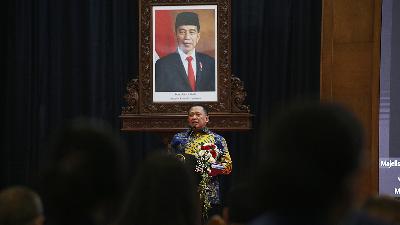
The plan to extend the President’s tenure is predicted to cause difficult deliberations on the amendment of the 1945 Constitution. There is concern that political interests may be at play.

Victims of sexual violence have the right to restitution in damages. Its mechanism is unclear.

The Constitutional Court ruled that the Job Creation Law is unconstitutional but ‘constitutional’. The ruling is riddled with compromises and intervention.
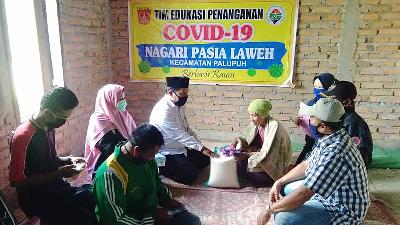
The Constitutional Court anointed Pasie Laweh a constitutional nagari. This is the result of innovative actions towards respecting people’s health and economic rights, and the right of application of customary law.
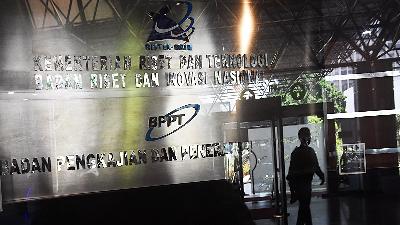
The PDI-P is pushing the National Research and Innovation Agency to become an autonomous institution. Megawati Soekarnoputri could potentially be appointed to chair its steering committee.
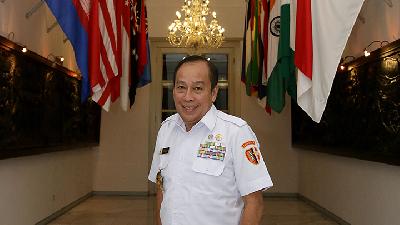
The army’s role in the recent sweeping operation to bring down the banners bearing Islam Defenders’ Front leader Muhammad Rizieq Shihab around Jakarta unsettled Agus Widjojo, governor of National Defense Institute (Lemhannas).

Ever since President Joko Widodo mentioned the need for decentralized coronavirus testing, Eijkman Molecular Biology Institute’s phone lines have not stopped ringing.

The domestic furniture industry is growing, both domestically and in exports. The gaps in the domestic market is an opportunity for local players. Design innovation and environmental standards need to be tightened in order to improve competitiveness.
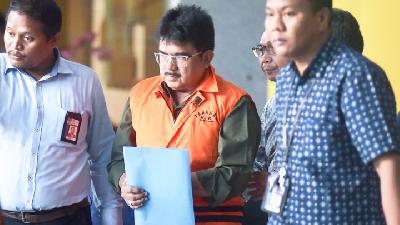
The Corruption Eradication Commission is investigating a bribery case related to tax restitution granted to Wahana Auto Ekamarga. A top executive from the parent company in Singapore is suspected to be involved.
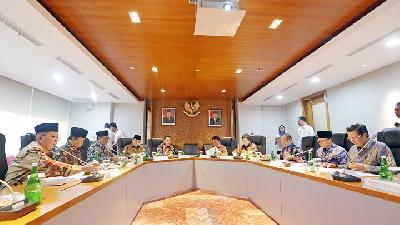
The proposed amendment to the constitution is not only about the state’s direction. Parties and senators have another agenda.
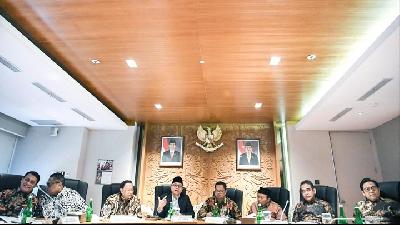
The PDI-P pushes for the amendment of the 1945 Constitution, creating holes to change major clauses including a president’s term in office.

ON Sunday, May 26, 2019, our family visited Situ Gunung, a tourist spot in Kadudampit subdistrict, Sukabumi Regency, West Java, about 10 kilometers from the town of Sukabumi.

VERY few people know of Nahum Situmorang (1908-1969). A dire lack of scholarly research and literature on the songwriter is one of the reasons. Yet Nahum Situmorang is a legendary song composer. In his lifetime, he wrote around 200 songs, most of which were composed at lapo tuak, or roadside palm wine drinking stalls. To this day in Medan, his songs are still being sung in roadside stalls, though not many know who wrote them. The most popularly performed Batak songs were written by someone who is now practically forgotten. In 1928, one of Nahum’s songs won second place in the competition to compose Indonesia’s national anthem. Alas, Nahum’s entry is now lost to the ages for not being filed and noted. To honor his achievements, a community of North Sumatran musician-artists celebrated Nahum Situmorang’s 110th anniversary at the Taman Mini Indonesia Indah, Jakarta, in mid-February.

When he first arrived at his new office on the pinnaclethe 15th floorof the Constitutional Court building in Jalan Medan Merdeka Barat, Jakarta, two weeks ago

Saldi Isra's life has changed drastically since April 11, the day President Joko Widodo appointed him as a Constitutional Court (MK) Justice. He had to move to Jakarta, give up his career as a lecturer of the Andalas University, Padang, which he held for the past 22 years, abstain from writing in the media and withdraw from many of his social circles. "It's been a 180-degree turn," Saldi said three weeks ago during a ride, as his car, a black Toyota Camry guided by a motorcycle escort, waded through Jakarta's notorious evening traffic.

The police must nail the brains behind case files theft at the Constitutional Court. The staff at the Court must be carefully screened and monitored.

The plan of Constitutional Court Chief Justice Arief Hidayat, 61, to take some days off in his hometown of Semarang three weeks ago, was not to be. When he landed at Ahmad Yani Airport that Thursday morning, he was all set to go teach at the 17 Agustus 1945 University in the city. But a telephone call from Jakarta made him turn around and fly right back to Jakarta. But not before a journalist gave him the shock of his life, when he was asked to comment on a news report that the Corruption Eradication Commission (KPK) had arrested one of his judges.
That evening, back in Jakarta, Arief received confirmation that Patrialis Akbar, one of the Constitutional Court judges, had indeed been arrested. The charge against Patrialis was bribery involving a judicial review of Law No. 41/2014 on Livestock and Animal Health. Patrialis, who was justice and human rights minister from 2009 to 2011, was also accused of leaking the results of the judicial review, to Basuki Hariman, a beef trader who is suspected of bribing the judge. "Here we go again, another blunder," said Arief. This is the second time Arief has gone through such an incident. The first case involved Akil Mochtar, his predecessor, who was accused of accepting a bribe over a dispute on the results of the regional chief executives' elections in 2013.

After he was questioned for 15 hours, Patrialis Akbar, a judge of the Constitutional Court, did not immediately return to his cell at the Corruption Eradication Commission (KPK) detention facility. It was already 1:00am on Friday, last week. Wearing a vest given to detainees, Patrialis sat ruminating for some time, on the porch of the detention facility. He occasionally spoke to KPK officers escorting him from the interrogation room to his cell.
"This is a very tough test," said Patrialis, a justice and human rights minister during the presidency of Susilo Bambang Yudhoyono. Linda Trianita from Tempo had a chance to ask Patrialis a few questions.

After he was questioned for 15 hours, Patrialis Akbar, a judge of the Constitutional Court, did not immediately return to his cell at the Corruption Eradication Commission (KPK) detention facility. It was already 1:00am on Friday, last week. Wearing a vest given to detainees, Patrialis sat ruminating for some time, on the porch of the detention facility. He occasionally spoke to KPK officers escorting him from the interrogation room to his cell.
"This is a very tough test," said Patrialis, a justice and human rights minister during the presidency of Susilo Bambang Yudhoyono. Linda Trianita from Tempo had a chance to ask Patrialis a few questions.

Nahdlatul Ulama (NU) Chairman Said Aqil Siroj was one of the first people President Joko Widodo reached out to following the November 4 mass demonstration. The President conveyed his gratitude to the chairman of the country's largest Islamic mass organization, for his calming statements during the protests against Jakarta Governor Basuki Tjahaja Purnama, for his allegedly blasphemous statements. In fact, just before the protests, the NU had indeed urged all of its memberstotaling more than 40 million peopleto help placate the tension by not being provoked.
In other words, Said and other NU leaders discouraged their members from joining the protests. "In Islam, there is no such thing as a demonstration," explained Said. However, he was critical of the government, saying it was slow in building communications with Islamic mass organizations. Said, 63, said the government should not communicate only when there are conflicts. "I am very happy to be approached and to have my existence acknowledged," Said commented. However, he regretted the President's statement that there were politicians who piggy-backed on the demonstrators during the November 4 protests, for their own particular purposes.

IT was dusk, the right time for Saiful Alam to venture into the forest. The 36-year-old man is a tour guide in West Belitung, tasked with helping tourists find tarsius (tarsius bancanus saltator)-a small, beady-eyed primate that comes out at night.
Guided by a headlamp, on Wednesday two weeks ago, he led two students from the Bandung Institute of Technology into the protected forests of Gunung Tajam.

Since it was created in 1817, the Bogor Botanical Garden has succeeded in conserving 60 percent of rare plant species, including endemic ones, 111 of which the International Union for the Conservation of Nature have classified as on the 'red list'. The Indonesian Institute of Sciences (LIPI) is currently conducting a conservation program in four national botanical gardens. They are the gardens in Bogor and Cibodas in West Java, Purwodadi in Central Java, and in Bali. Lately, LIPI has set out to create more than 30 botanical gardens in the regions, among them in North Sumatra, South Sulawesi, West Kalimantan, Riau, and Papua.
According to Sri Rahayu, botanical gardens in the regions were established as an effort to cultivate endemic plants in their original habitat. This is important because some plants are difficult to grow outside of their habitat.

Indonesia is a vast archipelago with bountiful resources. This is the reason why Dwi Susilaningsih has spent more than 20 years researching marine microbes that can potentially be converted into energy. She lamented, however, that Indonesians were slow to take advantage of such sources as the sun, wind or sea currents as renewable energy sources. As of today, only five percent of the total energy produced in Indonesia is renewable.
"And those renewable energy sources are small scale," said Dwi, head of the Infrastructure Research Center at the Biotech Division of the Indonesian Institute of Science (LIPI). Not surprisingly, she hopes the government will put more effort into producing energy from renewable resources, instead of from fossil fuels. This would be in line with the commitment made by more than 180 countries, including Indonesia, to reduce global emission after the UNFCCC-COP21 in Paris last year.

Reducing the Burden
Some communities on the island of Alor in East Nusa Tenggara Province have cut down on the cost of expensive customary rituals. The resulting savings means more children are staying in school and going to university.

An Alternative to Rice
Women's groups in Bangka Regency produce and market a healthy rice substitute from cassava known as beras aruk. It is healthier than white rice and can even help those with diabetes control their blood sugar.

Last week's attack in the middle of Jakarta should be seen as a wakeup call for the authorities. We may have been lulled by the six-year hiatus of bombings that were a feature between 2000 and 2009. In reality, however, the signs were all there to see. The comings and goings of radical Islamic elements in and out of Syria, their increasingly assertive campaigns on social media and most recently the discovery of a plot to carry out attacks on Christmas and New Year. The fact that only two fatalities resulted from last week's terror attack should also not be a reason for complacence. Responding to written questions posed by Tempo English, Sidney Jones, executive director of the Institute for Policy Analysis of Conflict and longtime student of radical Islam in the region, believes that, "We could be in for a period of more intensive terrorist activity."

Who knows what was in the mind of Constitutional Court Chief Justice Arief Hidayat when he asked the police to investigate allegations of falsification of signatures by advocates working in the Indonesian Legal Aid Foundation (YLBHI). After all, the hearing to review the Police Law and the Road Transport and Public Transport Law that began two weeks ago was already underway.
It is unlikely that Arief would have misunderstood the police and the YLBHI were on opposite sides of the dispute. Asking the police to check the authenticity of signatures of the judicial review plaintiffs showed bias, something that should be far from the minds or the actions of fair-minded judges.

Gusti Raden Mas (Crown Prince) Dorodjatun had a lot in his mind when he heard the whispers. Late one afternoon in February 1940, while he was resting in Yogyakarta Palace Gedhong Jene (Yellow House), the prince's drowsiness overcame him and he nodded off. Half asleep, he grew conscious of a presence who delivered this wisik (spiritual inspiration) message: "Wis, thole, tekena wae. Landa bakal lunga saka bumi kene (Everything will be okay son, just sign. The Dutch will soon leave our land)."

ILLEGAL logging and forest fires have became daily news in Indonesia. It causes untold damage to the environment, and our forests continue to disappear. "There must be a drastic change of mindset to overcome this problem," said Yanto Santosa, a lecturer of Forest Resources Conservation and Ecotourism at the Bogor Institute of Agriculture (IPB). Yanto, who is a graduate of the Languedoc Science and Technical University in France, is also the initiator of unique ways to conduct forest conservation, which requires people's participation. His expertise has been used in a number of UN Development Fund projects on climate change. Tempo English reporter Amanda Siddharta interviewed him recently at IPB. Excerpts:

ILLEGAL logging and forest fires have became daily news in Indonesia. It causes untold damage to the environment, and our forests continue to disappear. "There must be a drastic change of mindset to overcome this problem," said Yanto Santosa, a lecturer of Forest Resources Conservation and Ecotourism at the Bogor Institute of Agriculture (IPB). Yanto, who is a graduate of the Languedoc Science and Technical University in France, is also the initiator of unique ways to conduct forest conservation, which requires people's participation. His expertise has been used in a number of UN Development Fund projects on climate change. Tempo English reporter Amanda Siddharta interviewed him recently at IPB. Excerpts:

Clean and potable water do not come easily to Indonesians. So far, according to the Mineral and Natural Resources Ministry, only 68.9 percent of the population have access to clean water while only 20 percent get potable water. Given the government's inability to provide water supply, the poor are usually the worst off. "To meet basic needs, the government is able to provide the poor with rice, but with water? No such program exists," Roh Santoso Budi Waspodo, 52, who teaches hydrology at the Bogor Institute of Agriculture's Faculty of Civil Engineering and Environment told Tempo English.
Roh is quite familiar with problems relating to clean water supply. In the 2000s, he initiated a clean water project in Banten. He assisted the Public Works Ministry to supply potable water in coastal areas and small islands from 2004 to 2005. Besides teaching, one of his activities is to map out water sources for a private company. According to Roh, there are alternative ways to access clean and potable water. "We should not be dependent on the state-run water supply company," he urged. Contributor Lina Wulandari interviewed Roh two weeks ago.

Measuring the social and economic development of a country has been done countless times, by means of various accepted formulas. But only in the last decade has the understanding of good governance as the key to effective development been seriously and intensively studied and researched. Based on 40 data sources, and produced by 30 organizations worldwide, since 2002, the Worldwide Governance Indicators have been applied to 200 countries to measure the country's level of governance. This has provided watchdog groups with the necessary tools to monitor policy and initiate reforms, which also helps to immeasurably assess perceptions of corruption among businesses, public officials and politicians. Much of the work can be attributed to Dr. Daniel Kaufmann when the studies were initially conducted at the World Bank Institute, where he worked. For the past two years, Kaufmann has headed the Natural Resources Governance Institute (NRGI), which pioneered the Resource Governance Index to measure the transparency levels of countries in managing their extractive industry. Kaufmann was in Indonesia recently to meet with public figures in government, the business community and members of the local civil society, and to be the keynote speaker at a panel discussion on 'The Impact of Low Oil Prices on Indonesia's Reform Agenda' which was co-organized by the NRGI and Tempo English magazine. He was recently interviewed by journalists Hermien Y Kleden, Sadika Hamid, Gusthida Budiartie dan Edward Stephens from the Tempo Media Group. Excerpts:

Power engulfs people with solitude, and sometimes curses them with loneliness. This can happen to leaders anywhere, but only one novel has managed to depict it: One Hundred Years of Solitude, Gabriel Garcia Marquez's famous work.

RENNI Suhardi, 51, a lecturer of microbiology and biodiversity technology at the Bandung Institute of Technology (ITB) has concluded, after years of research and field work that biodiversity in Indonesia can only be conserved if it benefits society. "When I collected data on types of fungus, for example, I also tried to find which type had more economic value," said Renni.

It has been 30 years since Sudradjat 'fell in love' with coconuts. The thesis and dissertation of this lecturer of Agronomy and Horiculture at the Bogor Institute of Agriculture (IPB) were all about coconuts. He claimed to have been attracted to the philosophy of the cocounut tree-also known as 'the tree of life'. The coconut can grow anywhere and it has become, "the symbol of beauty in the tropics," said Sudradjat.

FOR almost a year, Hamdan Zoelva has only managed to sleep five hours a day. As the chief justice of the Constitutional Court he has had to bear the consequences of his predecessor Akil Mochtar's actions. Last year Akil was arrested, tried and sentenced to jail by the Corruption Eradication Commission (KPK). "Many people don't trust the Court anymore," said 52-year-old Hamdan.
Akil was guilty of accepting bribes from regional chief executives whose elections were in dispute. He was arrested in early October 2013, in the process of receiving money from Hambit Bintih, district chief of Gunung Emas. The case shook the Court. When Hamdan took over, public trust in the judiciary was at its lowest.

CONSTITUTIONAL Court Chief Justice Hamdan Zoelva turned red and his voice rose one decibel higher as he presided over the lawsuit submitted by the Jambi-based National Democrat Party. Two of the three witnesses had given conflicting information. When they were questioned further, they had no valid data. "It was very clear they were making it all up," Hamdan told Tempo.
The inaccurate testimony, according to Hamdan, was one among many problems in the court proceedings looking into disputes arising out of the recent legislative election. Some 700 cases submitted by political parties and legislative candidates were pending, with only three weeks to go before the deadline on June 30. "This week we will evaluate the cases so that a week before the deadline, all is in place."

Lawmakers elected two constitutional justices from four candidates proposed by a team of experts. There was no time to scrutinize their histories.

Public confidence in the Constitutional Court has collapsed. Government Decree No. 1/2013 is an attempt to restore it.

The tradition of ritual-enacting to pay respects to their ancestor remains very much a part of the Tanah Karo people in North Sumatra province, as demonstrated by the ngampeken tulan-tulan ritualplacing the remains of an ancestor to a better placewhich took place three weeks ago at the Bintang Meriah village. This particular ceremony involved a procession to place the skull of King Senina Lingga of Tanah Karo, who died 400 years ago, in a special place, after the skull had been put in safekeeping elsewehere since 1946, when Tanah Karo experienced certain after-war turmoil. Three weeks ago, Tempo correspondent Soetana Monang Hasibuan witnessed this unique ritual.

Meditation expert Suprapto Suryodarmo recently produced an event which brought together the worlds of architecture, Buddhist spirituality and art in various performances at Borobodur Temple.

The Constitutional Court has rejected a lawsuit against the election of Banten's governor and deputy governor. Ratu Atut and Rano Karno are safe for the time being.

The DPR and the government have agreed to reduce the authority of the Constitutional Court. Discussions on revising the law must not take place behind closed doors.

The Singapore government is holding a large exhibition of Tang Dynasty treasures taken from a shipwreck in Bangka Belitung waters in 1998. At the time Indonesia received very little compensation.

Constitutional Court Chief Justice Mahfud Md. and judge Akil Mochtar have reported lawyer Refly Harun to the KPK. Now Refly, who was originally commissioned by Mahfud to investigate reports of corruption in his court, finds himself on the defensive.

The Situ Gintung tragedy spreads fears among residents living close to manmade lakes in Jakarta.

Empty lots around Situ Gintung are becoming scarce. This could have been a factor which contributed to the collapse of the dam.

The Constitutional Court considers provisions on defamation constitutional. They can be used to stifle freedom of expression.

The Constitutional Court refused to revoke possible criminal charges for defamation cases. Freedom of expression is under threat.

The young Soemantri came from a remote spot in East Java to make history for himself in the middle of the last century. He was involved in the heated debates that took place in the Constitutional Assembly.
These days, as an intellectual, along with several colleagues he is still endeavoring to put the Constitution into order so that it can become the soul of the nation in coming centuries.
Speaking with Widiarsi Agustina from Tempo, he spoke about how different the political disagreements were during the era of the Constitutional Assembly compared with the current era of reform. Throughout the discussion with Tempo, not once did he have to refer to notes to recall dates or names. He is far from senile. “The secret lies in the three b’s: prayer (berzikir), thought (berpikir) and love (bercinta),” he said.

The Constitutional Court should approve the disbanding of the Film Censorship Institute, which is now outdated. Replace it with a ratings institute, a suggestion that has nothing to do with liberalism.

Jailing a columnist is a serous breach of the Constitution. Articles on defamation in the Criminal Code must be reviewed.

The Palace is finally going along with plans to amend the 1945 Constitution. The motivation could be the strengthening of the government’s executive branch.

There are widespread rumors that former State Secretary Yusril Ihza Mahendra will be nominated as a candidate for the head of the Constitutional Court. Is the President testing the public’s reaction?

Aidit, who came from a well-respected family, first developed his communist leanings when he witnessed laborers at a tin mining company in Belitung.

Sukarno eventually dissolved the Constitutional Assembly, but not before it produced many quality amendments.

The Human Trafficking Law imposes heavier punishments on those proven to have ordered others to prostitute themselves. Will it work in Indramayu?

Although the golden age is gone, tin mining continues in Belitung on a small scale.

The Anti-Pornography Bill highlights the different attitudes in the entertainment business.

The funding level for the education sector in the 2006 State Budget has been declared unconstitutional. The Constitutional Court is giving the government a chance to fix this by amending this years spending.

Tangerang town has implemented a law banning prostitution. Apart from being discriminatory and open to multiple interpretations, it also contradicts the Criminal Code.

The Constitutional Courts decision to annul Law No. 16/2003 has triggered heated debate.

A clarification is needed on when the presidential and vice-presidential candidates will be announced to the public. There seem to be differences between the Constitution and the law.

The condition that presidential candidates be ethnic Indonesians should be removed; the government must set a good example by obeying the Constitution.

The Azzaitun Islamic boarding school faces allegations that it's a hotbed of anti-government activism and deviant teachings.

Several PDI-P politicians are rethinking the changes to the1945 Constitution.

Today, the Balinese cremation ritual of ngaben need not be identified with geni (fire), nor should it cost millions of rupiah. Having been reformed to assume a more democratic character, it is now an affordable and festive event. A priest of the common people and one of the "upper class" can now jointly lead the ceremony. To find out more on how this democratic ngaben is performed, TEMPO reporter Seno Joko Suyono, assisted by correspondent Made Mustika, traveled last week to Pujungan village in Tabanan, Bali, where a mass ngaben took place. The following is his report:

Civics education in Indonesia has been a failure. As a result, most members of the House of Representatives/People's Consultative Assembly (DPR/MPR) lack an understanding of the theory of constitution.

The Constitution delegates greater power to the House of Representatives (DPR) in determining the State Budget (APBN). Sadly, the DPR's performance remains disappointing.

Summary of Aksara's monthly discussion with Prof. Dr. Harun Alrasid, expert on constitutional law.

Abdullah Gymnastiar has a heartbreaking spiritual honesty. Direct, smart and full of humor.

The Constitution Commission proposed by PDI-P appears to be an extension of the committee already established. Is this an effort to safeguard power?
Independent journalism needs public support. By subscribing to Tempo, you will contribute to our ongoing efforts to produce accurate, in-depth and reliable information. We believe that you and everyone else can make all the right decisions if you receive correct and complete information. For this reason, since its establishment on March 6, 1971, Tempo has been and will always be committed to hard-hitting investigative journalism. For the public and the Republic.